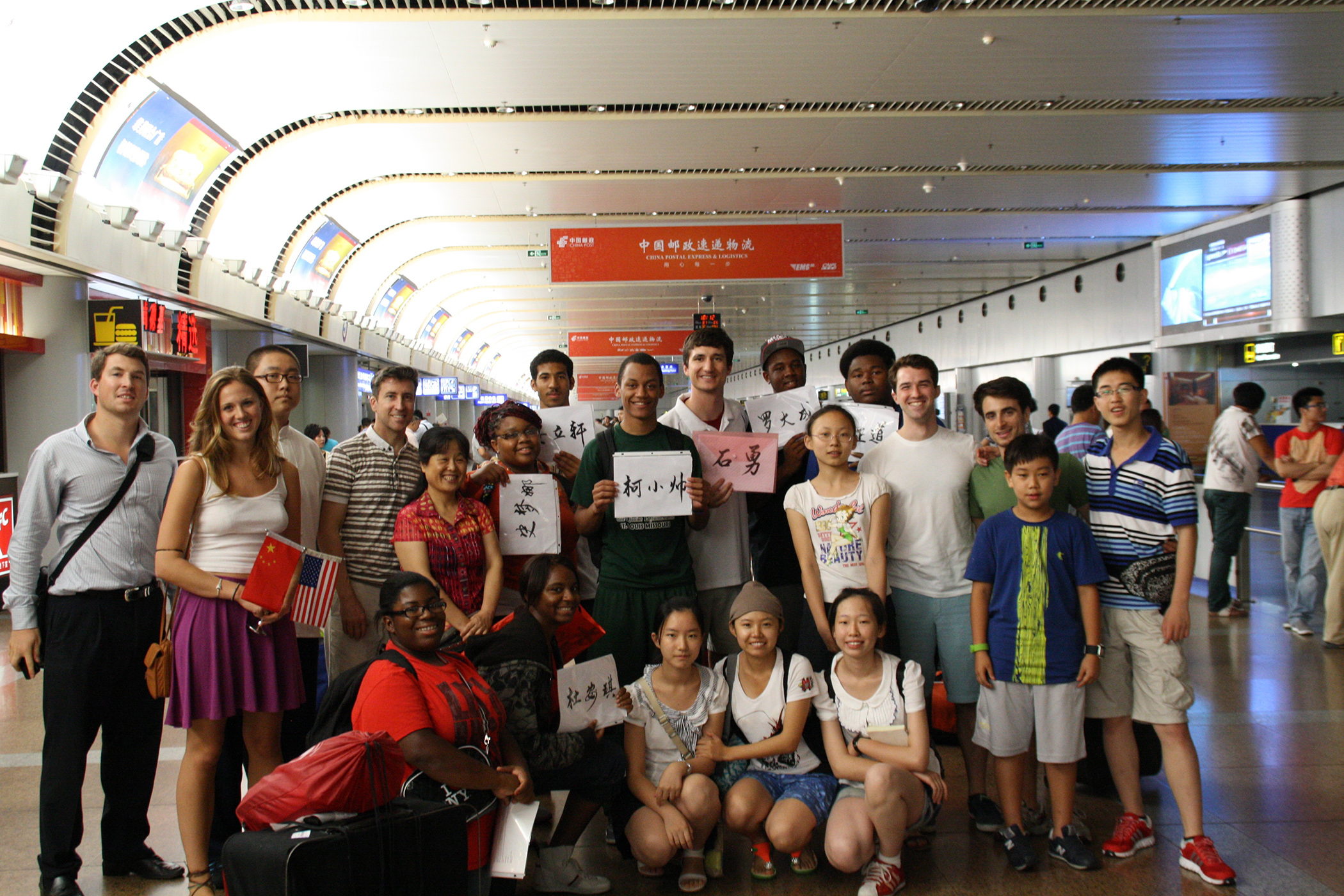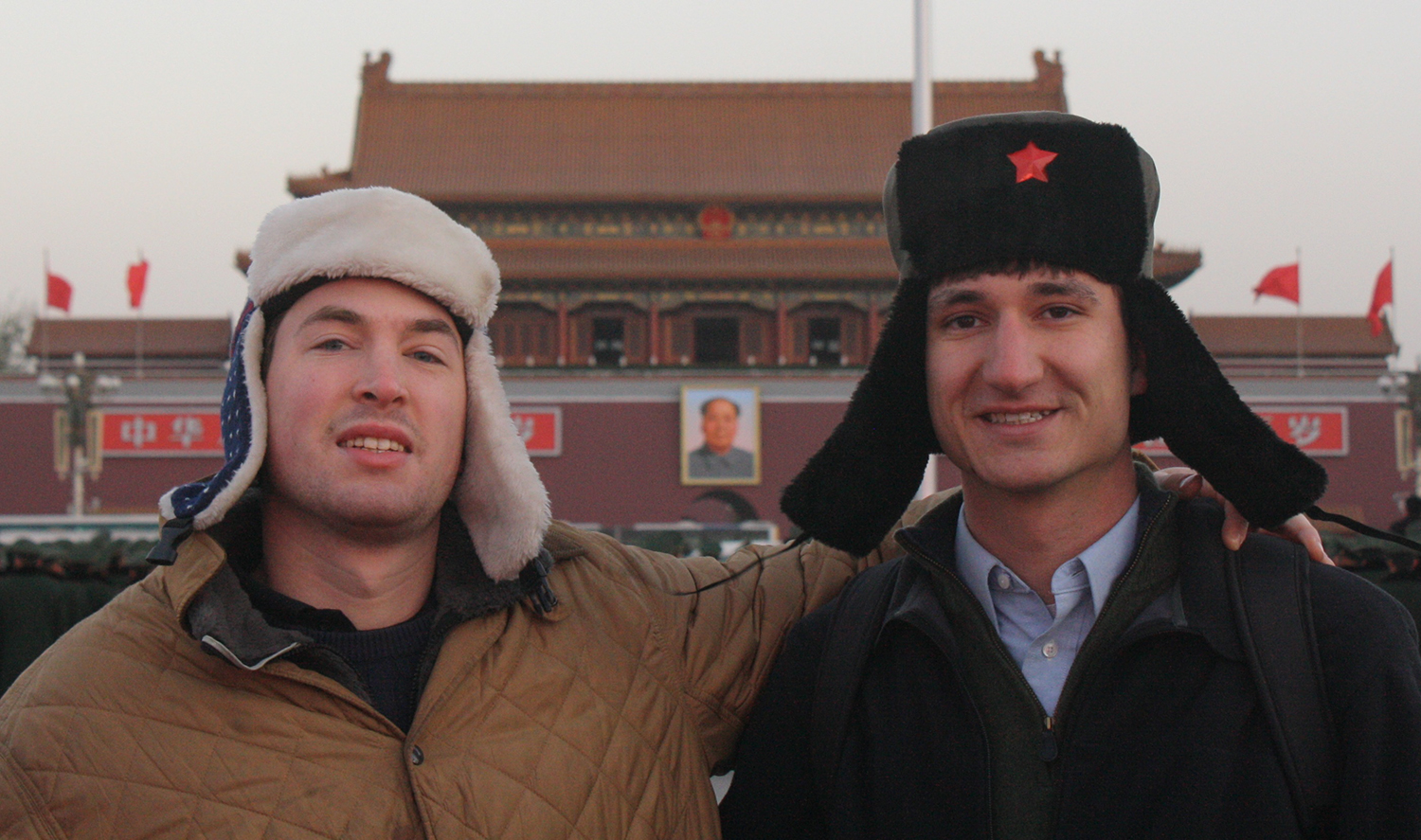
BY WYATT SMITH, BS’10
Three months into my Teach For America experience, I received a phone call from a Vanderbilt classmate halfway around the world. On the other end of the line, a familiar voice with an unmistakable New England accent shouted: “Wyatt, what do you think about coming back over to China with your students?!” Instantly, I could tell that a new adventure was brewing in my college friend’s mind.
Tyler Godoff, BS’10, and I first met in the fall of 2007 while walking across the 21st Avenue bridge linking Peabody to the rest of the Vanderbilt campus. As a native of rural Alabama, I might have made an unlikely friendship for Tyler—this tall, charismatic transfer student from Boston hailed from a starkly different Massachusetts background. But like me, Tyler was eager to meet people from all sorts of cultures, and he transitioned easily into the Vanderbilt community. Adventurousness led Tyler to study abroad in Shanghai, form the Vanderbilt chapter of Global China Connection (a global nonprofit dedicated to fostering deep and trusting relationships between Chinese and American students), and ultimately land a job at a leading Chinese state-owned shipping and logistics company in Beijing during our senior year.
As graduation approached, I also embarked on an exciting adventure: Thanks to Vanderbilt’s generosity, I received the Michael B. Keegan Traveling Fellowship, a grant supporting a year of international travel and research. During the 12 months after Commencement, I logged 100,000 miles through 32 countries and six continents, interviewing people around the globe about issues of citizenship and nationalism. And as one might imagine, one of my first commitments after winning the fellowship was to explore China with my college friend.
Tyler and I had an unforgettable month across China, meeting with migrant workers, government officials, and some of the brightest American expatriates in the world. And as I returned home at the end of the year to join the Teach For America movement—a national nonprofit that places highly ambitious college graduates in the nation’s most underprivileged schools—memories of our adventures in the Middle Kingdom continued to linger. I knew I wanted to allow my students a window into this mysterious, fast-growing nation.
Teaching in any context is a challenge. But teaching in an underperforming, low-income urban environment can be downright intimidating. Students in my history classes [at George Washington Carver High School] in inner-city Birmingham, Ala., are motivated, ambitious and hard-working kids, but poverty limits their exposure to diverse ideas and perspectives. With weak academic foundations, many have difficulty imagining China exists, much less thinking about the role it will play in an increasingly globalized world.
Within the first month, I realized I needed to do more to open the world to each of them. So I contacted people I’d met in my travels and asked them to Skype into my classroom, speak with my students about their experiences, and challenge my scholars to become active citizens in their own communities. Tyler jumped at the opportunity to be one of our first international speakers and invited his colleague, Abdulla Nurim, a Uyghur minority from China’s Xinjiang Autonomous Region, to join the call. My students were blown away—most notably, by the realization that it was dark on the opposite side of the world (while it was light in our time zone) and that they used a different currency than the dollar to trade on a daily basis.
In November, Tyler presented a challenge to me in a fateful phone call encouraging me to pursue a study-abroad option for my students in China. The concept seemed daunting: How could we take students who had hardly been beyond the city limits of Birmingham 7,000 miles across the world? How would we fund it? Tyler’s characteristic confidence helped convince me it would be possible. And so we set out to turn a dream into reality.
Seven of my students wrote application essays, interviewed via Skype, and ultimately were accepted to the Youth Leaders of America and China program.
While I spearheaded a grassroots fundraising campaign, Tyler taught weekly Mandarin lessons, waking before 6 a.m. in China to Skype into our Birmingham classroom and share basic phrases, greetings and cultural insights. Unforgettably, in the midst of one lesson about Chinese cuisine, a Chinese food-delivery order was dropped off at our school—he’d ordered takeout for our students from halfway across the globe.
Our efforts paid off. The large-scale “crowdfunding” campaign—which involved hundreds of letters to potential sponsors, online videos and social media appeals—generated our target of $45,000. With the final plane tickets booked and passports in hand, I called Tyler with the good news: I was coming back to Beijing. And this time I was bringing seven of my students along with me.

As we stepped off the airplane into a smoggy July morning in Beijing, a smile crept across my face. There at the gate stood an unmistakable Bostonian, holding a set of Chinese calligraphy scrolls, each with one of my students’ Chinese names written in flowing characters across it.
“I got on a plane, and my world changed,” reflects DeAnquinetta Gill, a 17-year-old student of mine who participated in the month-long experience and plans a career in pediatric medicine as a result. “This opportunity showed that people really believe in me and what I can accomplish.”
When Cornelius Vanderbilt donated $1 million to found Vanderbilt University, he sought to build a university in the South that would “contribute to strengthening the ties which should exist between all sections of our common country.” The friendship Tyler and I fostered on West End not only bridged North and South, but connected East and West. And I’m excited by the connections our friendship will continue to build in the years to come.
Wyatt Smith and Tyler Godoff both graduated from Vanderbilt Peabody College in 2010. They are currently raising funds to expand the Birmingham to Beijing Project in order to include even more deserving students in 2013. Email Wyatt Smith or visit the project website to learn more.